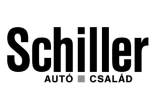


News
AutoWallis: Stagnant revenue in the first half despite the unfavorable business environment
2020.08.31.
In an economic environment burdened by the COVID-19 epidemic, the revenue of AutoWallis was HUF 38.2 billion in the first half, which essentially means stagnation compared to the previous year. The impacts of the significant acquisitions and business developments announced in the past half are not yet visible in the revenue and the results; their positive effect on the figures will probably only show in the second half of the year. The three business units of the corporation were characterized by varied performance: the domestic sales revenue decreased by half a percent, international sales increased by 1.5%, while the revenue of the Automotive Services Business Unit, which was the most exposed to the negative environment, dropped by 11%, primarily due to the decrease in car rentals. Besides the environment, the results were also adversely impacted by one-time items, yet AutoWallis closed the first half with an EBITDA of HUF 689 million.
The COVID-19 epidemic has had a significant negative impact on the new vehicle market of the European Union (EU, EFTA, United Kingdom) in the first half (-39.5%), compared to which the Hungarian market suffered a smaller decrease (25% on average). In comparison, the sales figures of AutoWallis have been more favorable: the revenue of the International Distribution Business Unit increased by 1.4% to HUF 16.8 billion, while the sales volume increased to a larger extent, by 15.6%. This is because the increase occurred at lower average sales prices due to the shift of product mix to smaller vehicles, and also because of the significant volume of fleet sales on the Balkan markets with a considerably lower than average margin. The revenue of the Domestic Distribution Business Unit increased merely by 0.5% to HUF 18.1 billion, while the volume sold decreased by 5.6% to 1,547 units. These trends counter to the international figures are due to the significant impact of the turnover realized by AutoWallis in the premium segment, and the higher sales prices of the vehicles sold in the new Jaguar Land Rover dealership opened in April. In the Automotive Services Business Unit (including after-sales services and car rentals), the business unit most exposed to the unfavorable environment, the decline in tourism and business travel, and the almost complete stopping of airport traffic, there was a revenue decrease of 11% despite the management’s best efforts to decrease the size of the available rental fleet, and to use it for alternative purposes, like courier services. Despite the COVID-19 epidemic, service activities remained stable on average, and even increased in some service facilities.
Regarding the results, Gábor Ormosy, CEO of AutoWallis, explained that the unfavorable economic impacts of the COVID-19 epidemic could already be felt in the Hungarian market in March, but the second quarter brought about a fully negative environment. He pointed out that AutoWallis performed above market average regardless, and if the third quarter does not bring about restrictions of the same magnitude as in spring, affecting the economy, consumer activity could gradually approximate the usual levels. An exception could be the Automotive Services Business Unit, which includes car rentals as well, as it is the most exposed to the effects of tourism and business travels, which almost came to a halt due to the COVID-19 epidemic. The CEO emphasized that the corporation announced five significant business developments and acquisitions in the first half, which have not all been fully closed yet, so their positive effect on the revenue and the results could start showing only starting from the second half, and could be fully manifested in the next year. (The relevant business developments and acquisitions are as follows: acquisition of the largest Hungarian Opel and KIA dealership; starting the distribution of Jaguar and Land Rover models in Hungary; the planned takeover of the largest Slovenian BMW dealership; equity investment in Iniciál Autóház, a major company of the Western Hungarian region involved in the sales and servicing of seven significant vehicles brands; acquiring the importer rights of Opel in three Central and Eastern European countries.)
Besides the environment, the results of AutoWallis were also negatively impacted by one-time items in the first half: on the one hand, as already indicated earlier, there is the full damages amounting to HUF 158 million incurred for the year 2020 due to the unlawfully misappropriated assets of two subsidiaries of the group; on the other hand, there was a temporary revaluation difference of HUF 362 million appearing in the books on the last day of the half, but financially not realized. The figure most indicative of the profitability of the group, the EBITDA (earnings before interest, tax, depreciation and amortization), would have decreased by 38% to HUF 847 million without the one-time items negatively impacting the results; however, together with these one-time, temporary items the EBITDA was HUF 689 million (-51%). The comprehensive overall result was a loss of HUF 765 million due to the above temporary and one-time items, but without these it would have been less, HUF 245 million, as opposed to the profit of HUF 545 million of last year. The primary reason for the low performance was the COVID-19 epidemic leading to a drop in automotive services due to the full stoppage of airport traffic; in the International Distribution Business Unit, it was the temporary decline in the profit producing capability due to the discontinuation of the previously most significant profit producing models (Ssangyong Korando, JLR Discovery), and the delay of the new models that were to replace these. The Cost of Goods Sold (CoGS) increased by 2% to HUF 33.8 billion, as the expenses related to the rental fleet could not promptly follow the drastic decline in the revenue of the Automotive Services Business Unit, while the value of contracted services decreased by 20% to HUF 1.5 billion due to the cost cutting made necessary by the epidemiological measures. The 16% increase of the personnel expenses compared to last year (the average statistical headcount in the group increased to 330) surpassed the average of the turnover change, similarly to last year, and already includes the personnel expenses incurred due to the recruitment necessary for launching the new Jaguar Land Rover dealership and service in Budapest, which opened its gates in April.


Latest news
Number of voting rights, composition of share capital 31.01.2026
2026.02.02.
Four analysts recommend AutoWallis shares for purchase with a consensus target price of HUF 200
2026.01.27.
AutoWallis opened the first NIO dealership in Hungary
2026.01.23.
Mobility Perspective 2026: Market outlook and AutoWallis brands’ plans for the Slovenian automotive market
2026.01.22.
Sales Report Q1–Q4 2025 – AutoWallis accelerates in 2025: sales picked up across all business units in the final months
2026.01.15.
